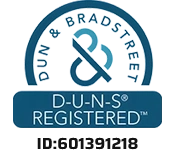PC Injection Molding
PC injection molding shines for its exceptional clarity and toughness within the plastic injection molding domain, yet it also stands capable of yielding non-transparent parts through material modification.
Its necessity for precise processing techniques highlights its specialized application scope, spanning from crystal-clear components to customized opaque ones.

PC Injection Molding at FirstMold
Among transparent materials, PC injection molding is used more frequently compared to PMMA (Acrylic) and AS injection molding. FirstMold has accumulated a vast array of cases and experience in PC injection molding, second only to ABS material. We have conducted in-depth studies on modified PC materials, allowing for a broader range of applications to be widely manufactured.
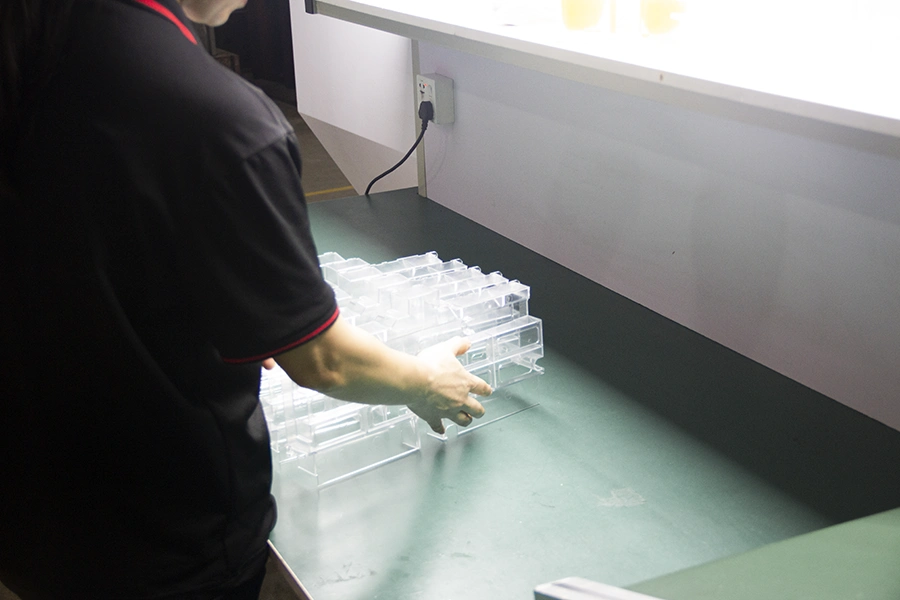
Applications of PC Injection Molding
PC’s commom use in many sectors due to its best transparency and impacts resistance and thermal stability which is used for both for the purpose for the functional reliability and visual quality.
Automotive & EV

- Headlight assemblies
- Door handles
- Bullet-resistant windows
- Sunroofs
- Interior lighting panels
- Rearview mirror housings
- Engine covers
Entertainment & Leisure
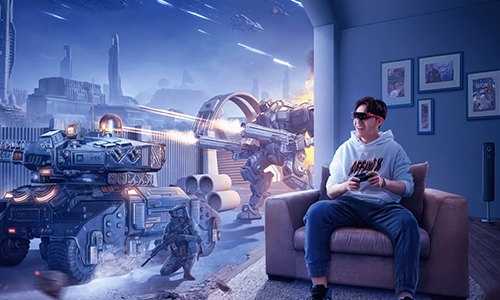
- Camping gear
- Outdoor furniture components
- Playground equipment
- VR Equipment
- Gaming handheld devices
- Windows and skylights for RVs
- Educational toys
Industrial machinery
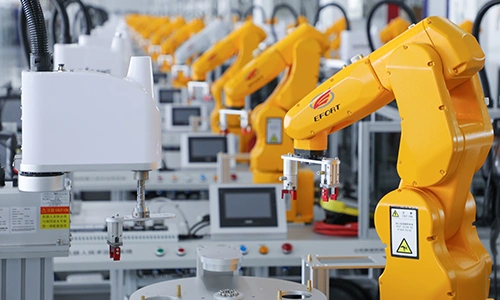
- Control Panel Covers
- Sight Glasses
- Gear Covers
- Lighting Enclosures
- Display Screens
- Inspection Window Panels
- Cooling Fan Blades
Personal Care
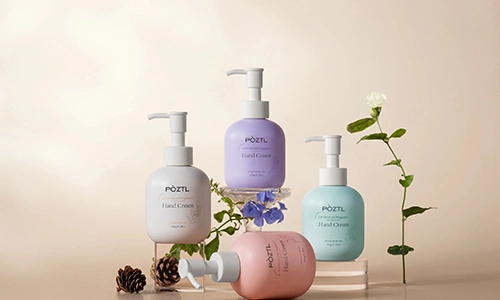
- Hair Dryer Bodies
- Electric Toothbrush Handles
- Perfume Bottles
- Cosmetic Compacts
- Eyelash Curlers
- Skin Care Device Housings
- Razor Handles
PC injection molding is also widely used in Telecommunications, Energy, Art and Design, Construction and Building and most other industries and fields. PC/ABS Blends, Glass-Fiber Reinforced PC, PC/PBT PC/ABS Blends, Glass-Fiber Reinforced PC, PC/PBT and other modified plastics are also very common plastic raw materials.
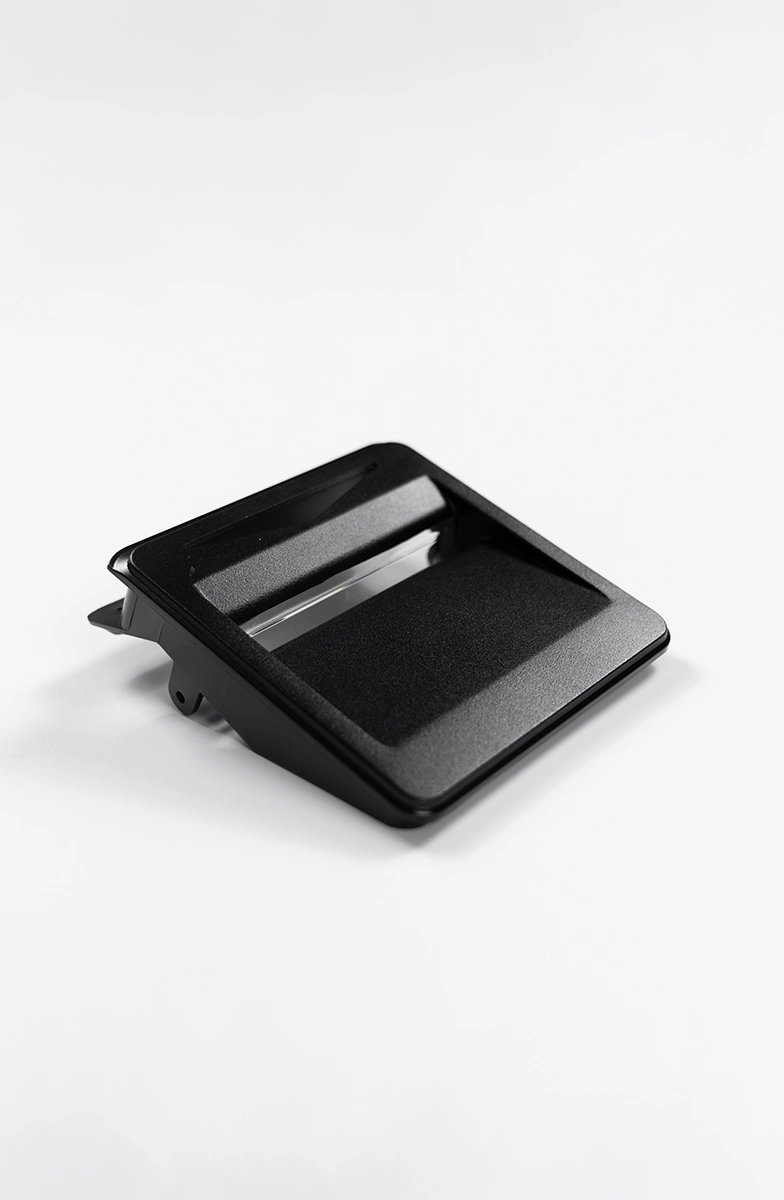
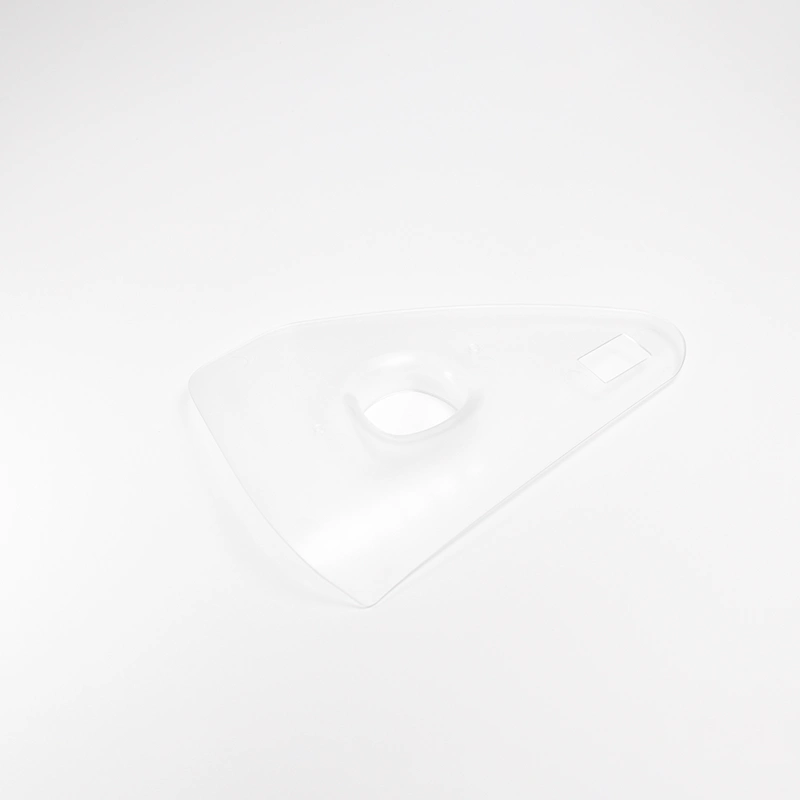
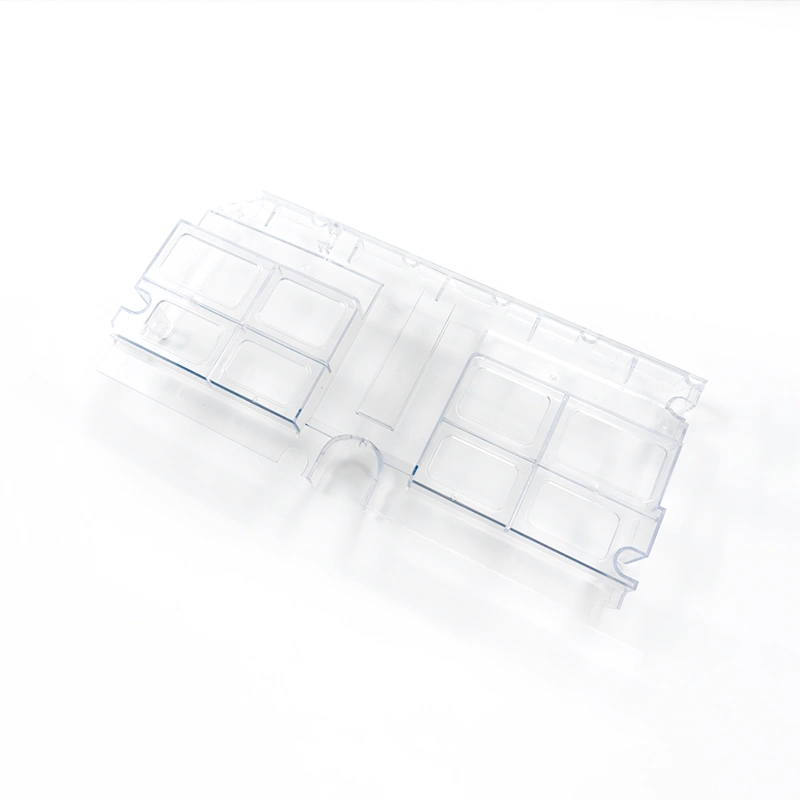
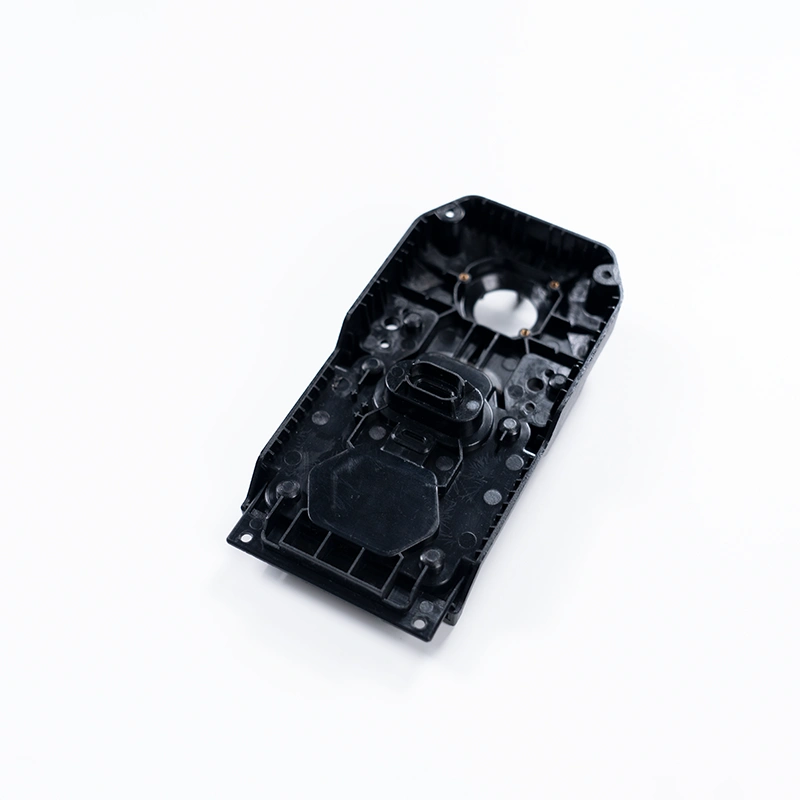
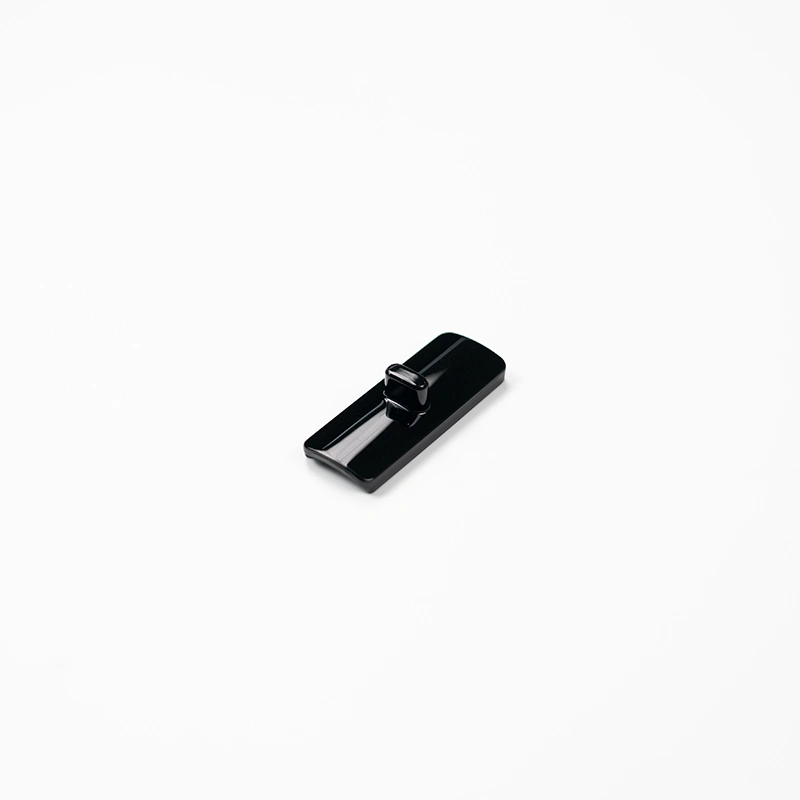
PP
PE
PC
PVC
ABS
PA
POM
PBT
PMMA
PEEK
PC Injection Molding Capabilities
FirstMold’s technical capabilities, including:
- Types of PC materials handled (e.g., standard, glass-filled, flame-retardant).
- Range of machine tonnage and part sizes you can produce.
- Secondary processes offered (e.g., ultrasonic welding, chrome plating, painting).
- Advanced technologies used for precision and efficiency.
Problem-Solving for PC Defects
FirstMold is equipped to tackle all challenges associated with PC injection molding, from sink marks and warping to voids and jetting. Leveraging our extensive experience, we easily identify and rectify common and complex defects.
Versatile PC Material Solutions
Whether it’s small batch production for prototypes or large-scale manufacturing, dual-color injection molding, or specialized finishes, FirstMold has the capabilities and technology to deliver exceptional results.
Expert Product Design Support
We offer comprehensive product design support to ensure your components not only meet but exceed expectations. From material selection advice to design optimization for manufacturability
PC Injection Molding Cases
A simple case of mass production of thermal paper printer housing with injection molding applications in the consumer electronic industry.
A simple case of mass production of portable ECG monitor buttons with a wide range of injection molding applications in the medical industry.
This case shows the insert molding process to produce drone remote control housing from a Chinese plastic component manufacturing factory
FirstMold's custom hair trimmer manufacturing meets stringent customer requirements for appearance and performance. This is a case.
PC Injection Molding FAQs

What are the cost factors involved in PC injection molding?
The cost factors involved in PC (Polycarbonate) injection molding primarily include the cost of PC materials, the cost of manufacturing the injection molds, equipment costs, labor costs, and more. For detailed information, please refer to “Injection Molding Costs”
Can FirstMold provide material selection and design consultation for PC injection molding projects?
Yes, FirstMold can provide material selection and design consultation for clients’ PC injection molding projects. We have extensive experience and expertise, allowing us to offer customized solutions that meet diverse client needs and challenges.
Through communication with clients, we understand the specific requirements and constraints of the projects, providing appropriate materials and design solutions to optimize product performance and appearance while reducing production costs and risks.
What are the maximum and minimum wall thicknesses FirstMold can achieve in PC injection molding?
The maximum wall thickness FirstMold can achieve in PC injection molding primarily depends on the design and manufacturing quality of the mold, as well as the performance of the PC material. Generally, the maximum wall thickness can exceed 20mm.
The minimum wall thickness is also influenced by many factors, such as the strength of the mold material, injection molding process parameters, the size and position of inserts, and the design of the gate. Generally, the minimum wall thickness should be above 2mm to ensure the strength and stability of the mold.
FirstMold’s professional team will design and manufacture the mold according to client needs and product characteristics, ensuring the mold wall thickness meets production requirements while maintaining the mold’s stability and lifespan.
How does FirstMold test the mechanical properties of PC injection molded products?
FirstMold conducts thorough testing of the mechanical properties of PC injection molded products by adhering to international standards like ASTM and ISO. Tests include tensile, flexural, and impact assessments to evaluate strength, stiffness, and toughness. Additionally, hardness and thermal analyses like DSC and TGA are performed to ensure the material’s performance under various conditions. Dimensional accuracy and structural integrity checks are also crucial to meet precise design specifications.
The testing process involves initial material verification, production of test samples under standard conditions, and comprehensive mechanical and thermal testing. FirstMold compiles detailed reports of all testing phases and maintains close communication with clients to ensure the products meet both regulatory standards and client-specific requirements, ensuring reliability and suitability for intended applications.
How does FirstMold handle undercuts and complex features in PC injection molds?
FirstMold handles undercuts and complex features in PC injection molds by employing advanced design and specialized molding techniques. Mold designs incorporate features like sliding cores and lifters to facilitate the creation of complex geometries. For intricate undercuts, mechanical components such as side-actions or hand-loaded inserts are used, which can be retracted or removed post-molding.
Additionally, FirstMold utilizes high-grade tooling materials and advanced simulation software to ensure the mold’s integrity and performance. Techniques like sequential valve gating and gas-assisted injection molding are also applied to precisely control material flow and cooling, ensuring high-quality production of complex parts.
What are the best practices for designing snap-fits for PC materials that FirstMold recommends?
Key practices include ensuring dimensional accuracy, optimizing wall thickness for strength and flexibility, and incorporating generous corner radii to minimize stress concentrations. The use of finite element analysis (FEA) to predict stress points and thorough prototyping to test functionality are also recommended to ensure the durability and performance of snap-fits.
What ongoing support does FirstMold offer post-delivery of PC injection molded parts?
FirstMold offers robust post-delivery support for PC injection molded parts, including technical assistance for integration and performance issues, quality follow-up to ensure the parts meet operational standards, and replacement services for any defects. Additionally, clients receive comprehensive documentation and training on maintenance and usage, with options for part customization and optimization based on feedback and evolving needs. This ensures continuous satisfaction and performance enhancement for all products.



